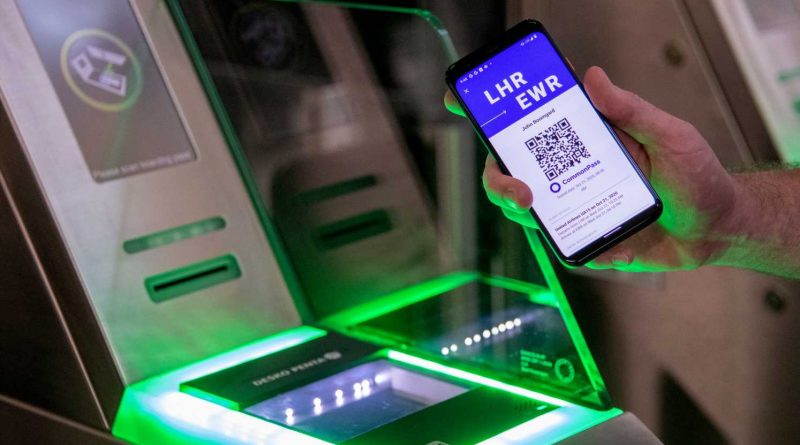What to know about the vaccine passports already being tested for international travel
LONDON — Boarding pass, suitcase, passport and … digital vaccination certificate?
Keen to avoid losing another summer of holiday revenue to the coronavirus pandemic, the European Union, some Asian governments and the airline industry are scrambling to develop so-called COVID-19 vaccine passports to help kickstart international travel.
They’re working on systems that would allow travelers to use mobile phone apps to prove they’ve been vaccinated, which could help them avoid onerous quarantine requirements at their destinations.
But the multiple efforts underscore the lack of one central international system to electronically verify vaccination status. The projects also face technical challenges in working together, while questions about privacy and vaccine inequality linger.
►Vaccine passports: How to prove you’ve gotten your COVID-19 shots for travel and avoid scams
►Have COVID vaccine, will travel: These are the countries open to fully vaccinated Americans
Vaccination passports would add another digital layer to the multitude of existing coronavirus health and contact tracing apps many countries and U.S. states have rolled out. Their use domestically to reopen local economies has been hotly debated, with many opposed to requiring them for pubs, concerts and sporting events. However, there’s more momentum to use them for international travel, especially as countries like Iceland open their borders to vaccinated visitors and others like Saudi Arabia start allowing vaccinated citizens to travel abroad. The EU’s decision last week to open its borders to fully vaccinated travelers adds even more urgency.
How vaccine passports work
The first part of a vaccination passport is the user’s official or approved electronic immunization record.
The European Union, China and Japan are all working on their own digital vaccination certificates for cross-border travel. The U.K., meanwhile, updated its National Health Service app last week to let fully vaccinated users prove their status when traveling abroad, coinciding with an easing of travel rules.
Testing is under way for the EU’s digital certificate, which will also confirm COVID-19 test results or recovery from the virus and is set to go live by the end of June, allowing residents to reunite with friends and relatives living across 30 European countries. It’s still unclear where and how exactly travelers in the EU, which doesn’t have internal border checkpoints, will have their certificates checked. Officials in Brussels say that will be up to individual countries. The idea is that travelers will flash a QR code on their phones so it can be scanned at, say, an airport or train station, using an official verification app that checks with national databases, via an EU technical “gateway.”
►Closed borders: US borders with Canada, Mexico to remain closed to nonessential travel into June
The World Health Organization doesn’t recommend vaccination proof as a requirement for international travel, citing unequal distribution of vaccines, even as it consults on interim guidance for developing a “Smart Vaccination Certificate.”
Integration with travel apps
Travelers also need a smartphone app to carry any eventual official vaccination certificates.
The EU’s project includes open source technology European countries can use to build their own official mobile wallets.
The International Air Transport Association, an airline industry group, has its smartphone IATA Travel Pass, which airlines including Qantas, Japan Airlines, Emirates, British Airways and Virgin Atlantic have signed up to. A rival effort, the nonprofit CommonPass, has gained traction with carriers like Cathay Pacific, JetBlue, United and Lufthansa.
Travelers can already use the apps to verify that their COVID-19 test results are accepted at their destination. Travel Pass and CommonPass are so far only available to travelers on airlines that are using them. Both can also be integrated into airline travel apps so users can verify their vaccine status when they check in online. Both are also expected to work with the EU certificates. CommonPass says users will be able to import vaccine credentials by mid-June.
Amid a pandemic-dimmed travel outlook, CommonPass CEO Paul Meyer said vaccine passports will only become more widespread. “Our expectation is it will remain a requirement for international travel.”
Source: Read Full Article



